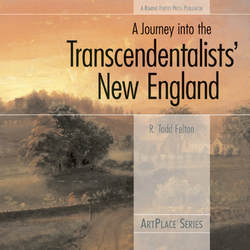Читать книгу A Journey Into the Transcendentalists' New England - R. Todd Felton - Страница 21
На сайте Литреса книга снята с продажи.
A Heritage of Rebellion
ОглавлениеEver since its founding on September 7, 1630, Boston has had a rich history of rebellion and conformity, radicalism and conventionalism. As a chartered English colony in the seventeenth century, the Massachusetts Bay Colony and its capital, Boston, were steeped in the Puritan values of hard work, moral uprightness, and education. These helped give the fledgling community stability as well as a sense of purpose and mission. John Winthrop, the colony’s first leader, declared Boston to be “the City on a Hill,” a beacon of Christianity whose success was a clear indication of God’s approval.
This “blessed” city, as one of the major cultural and political centers of the thirteen colonies, played a pivotal role in the years leading up to the Revolutionary War. The Boston Massacre, the Boston Tea Party, the Battle of Bunker Hill, and Paul Revere’s famous ride are all a part of Boston’s historical pedigree. All are duly commemorated in the city’s two-and-a-half-mile Freedom Trail, a red-painted path that leads visitors from its starting point on Boston Common to the major historical sites around the city connected with the birth of the nation.
Like the American Revolution, the literary and philosophic movement that came to be known as Transcendentalism found much in Boston to aid its growth. From the pulpits of the newly established Unitarian churches across the city, Harvard-educated ministers clarified and expanded upon the theological underpinnings of many of the movement’s central tenets. The various Transcendentalist clubs and societies that formed to share observations and readings met most often in Boston. Schools and discussion groups formed here, too, and allowed the Transcendentalists to introduce their ideas to a receptive audience of inquiring minds.
Boston was the preeminent U.S. city in the mid-nineteenth century.
And, not least in importance, Boston housed the publishers who gave the Transcendentalists access to wider audiences throughout New England, the country, and the world. The city also provided the Transcendentalists with places to work and think, as well as a network of colleagues in related movements, such as those pressing for women’s suffrage and the abolition of slavery. Although many of the movement’s major figures made their homes in Concord, the world knows them largely through their activities in Boston.
